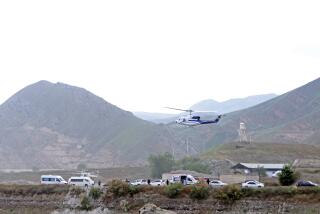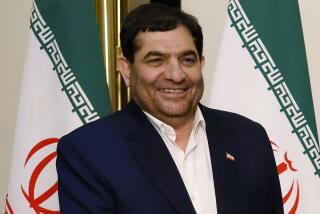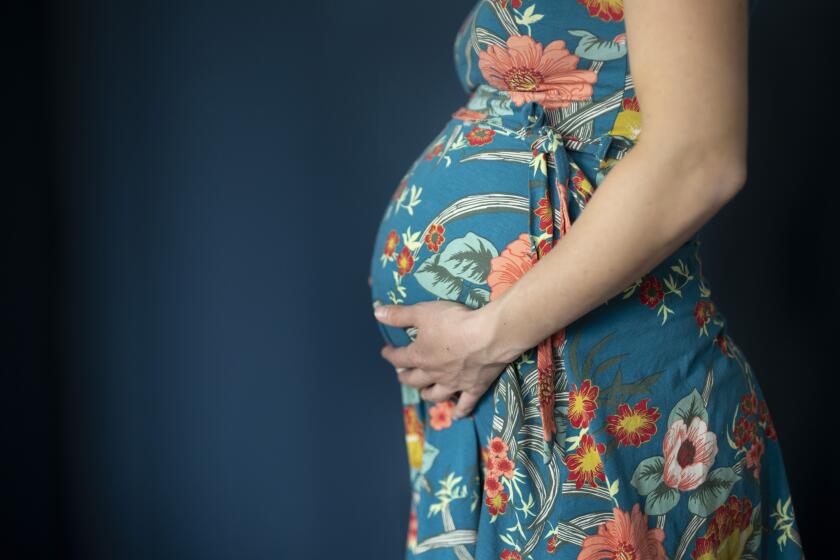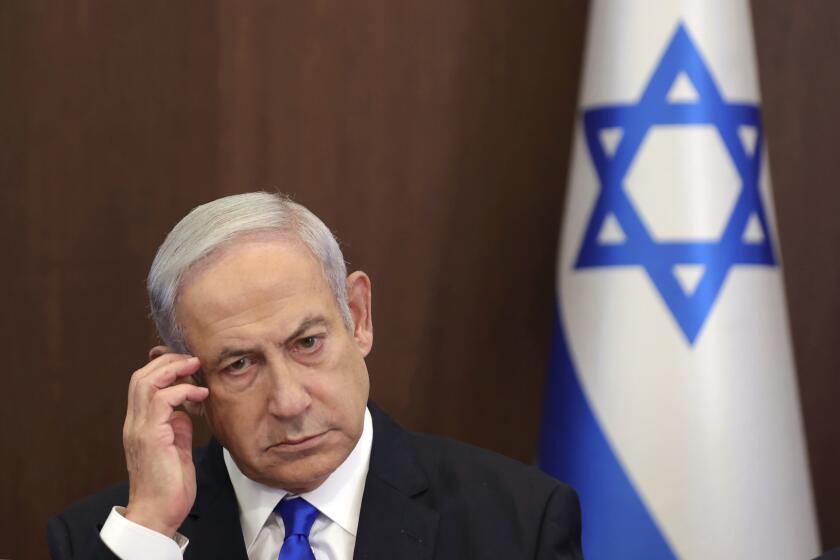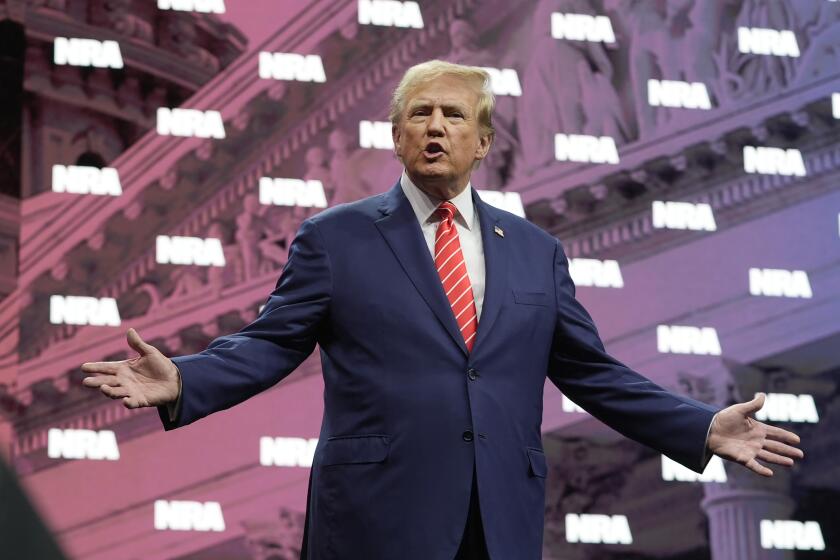LATIN AMERICA : Military Shake-Up Raises Hopes for Guatemala Peace
When new Guatemalan President Ramiro de Leon Carpio boldly shook up the military on his first day in office last month, he offered a mixed bag: He fired some hard-line officers but retained others, including the man he named defense minister.
The speculation at the time was that Gen. Roberto Perussina would be a transition defense minister. But no one expected the transition would last just 17 days.
This week, for the second time in less than a month, De Leon sacked his defense minister and named a replacement. Perussina was out, and Gen. Mario Enriquez was in.
This time, the new man is seen as a relative moderate with genuine interest in reforming the Guatemalan armed forces, arguably the most brutal army in Central America.
Enriquez’s appointment also raises expectations that a simmering civil war--the last and longest in the region--may finally reach a settlement. Enriquez serves on the government’s negotiating team, which has been involved in talks with the leftist guerrillas fighting the army for the last 32 years.
“I took this decision to undertake changes that will benefit Guatemala in the consolidation of democracy,” De Leon said on announcing Enriquez’s appointment Monday.
Another member of the government peace team, Gen. Marco Antonio Gonzalez Taracena, was promoted to the No. 2 post in the Defense Ministry staff.
De Leon was one of the army’s chief critics in his position as Guatemala’s human rights ombudsman, a post he held until his surprise election as president June 6. He was chosen to replace deposed President Jorge Serrano, ousted by the military after he dissolved Congress and suspended the constitution May 25 in an ill-fated bid to seize absolute power.
Analysts in Guatemala City regarded the removal of Perussina as a victory for the so-called constitutionalist sector of the army--those military men who are more supportive of civilian leaders and less inclined to overthrow the president.
The switch in defense ministers also reflects De Leon’s growing confidence in making changes where the military is concerned. Perussina reportedly resisted some changes at lower military-command levels that De Leon wanted, prompting the president to act so quickly in removing him.
Perussina “was a problem for this government, especially where the United States is concerned, because he was from the hard-line, pro-war, anti-negotiation sector of the army,” said a Guatemalan analyst with ties to the left.
The U.S. government is seen by some Guatemalans as taking a more active role in promoting an end to the war that has cost more than 100,000 lives. Traditionally, Washington had little influence on the Guatemalan military because U.S. military aid has been frozen for years in response to the army’s abysmal human rights record.
This week the president urged the guerrillas to rejoin peace negotiations, which broke down in May.
“My exhortation is that they take advantage of this great national consensus, that they don’t put up barriers on the points that are still to be discussed and that they re-integrate into civil society,” he said.
Still, skeptics point out that Enriquez, like most senior Guatemalan officers, has a spotty record that raises questions about his commitment to peace and respect for human rights. He was an adviser to former dictator Gen. Efrain Rios Montt, whose infamous “scorched earth” policy killed or drove tens of thousands of Mayan Indian peasants from their homes.
And whether they belong to the “constitutionalist” sector or not, few army generals are willing to sign a human rights accord that the guerrillas insist should be an initial step in any peace settlement.
More to Read
Start your day right
Sign up for Essential California for news, features and recommendations from the L.A. Times and beyond in your inbox six days a week.
You may occasionally receive promotional content from the Los Angeles Times.
